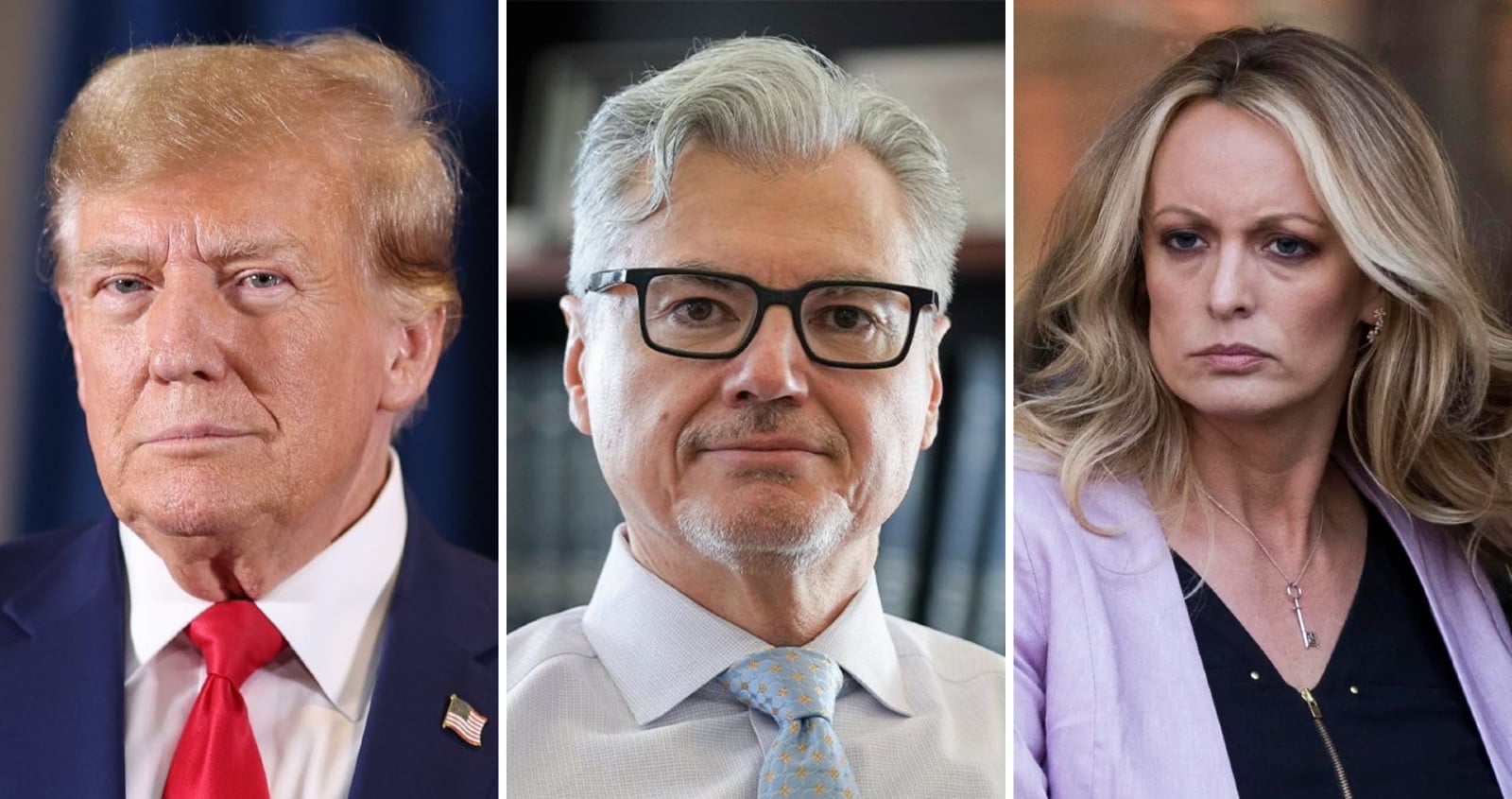OPINION: This article may contain commentary which reflects the author's opinion.
The court in the state of New York abruptly postponed the sentencing hearing for 34 criminal charges against President-elect Donald Trump on Tuesday without giving a reason. This gave the judge in charge more time to think about what to do next.
The hearing was pushed back on the same day that District Attorney Alvin Bragg was supposed to give Judge Juan Merchan his advice on what to do next, Fox News noted.
In May, a jury in Manhattan found Trump guilty on 34 counts of forging business records. This was related to a case about payments he made to porn star Stormy Daniels. He could have spent up to four years in prison for this crime.
But the election for president and Trump’s win made it hard to predict when the court case would start.
Due to Trump’s win in the election, the judge in charge of the New York case, Judge Juan Merchan, agreed earlier this month to extend all deadlines related to the case. This included a planned sentencing date of November 26.
“The People agree that these are unprecedented circumstances,” prosecutor Matthew Colangelo said in their request, which he added would allow for prosecutors to better evaluate the impact of his election as president.
Trump’s lawyers also supported the stay and have been pushing to get all of the charges against him dropped.
In July, the U.S. Supreme Court said that leaders should be protected from criminal prosecution for most of the things they do as president. This makes the next steps in the New York case even more difficult.
🚨 BREAKING: Trump hush money sentencing in New York ADJOURNED – ZeroHedge pic.twitter.com/MtGAZSPvev
— Eric Daugherty (@EricLDaugh) November 19, 2024
The high court said that in their role as commander-in-chief, presidents have “core constitutional powers” that protect them from all legal action.
They said that an assumption of immunity also covers other things that officials do while in office.
It is not clear, though, whether the Constitution should protect a president’s convictions at the same level as it does state convictions. This has never been tested in court.
Bragg’s office has said that its case is only about Trump’s personal behavior and not about what he did as president.
Trump, for his part, has called the case a “witch hunt” for political reasons many times. This is something the president-elect does a lot to discredit his critics, political opponents, and state and federal attorneys.
Even if Trump were to be found guilty, he has many options to fight the case or have the charges against him dropped before the sentencing hearing on November 26. This means that he almost certainly will not have to go to jail.
Last week, Trump’s lawyers and the Manhattan district attorney’s office agreed to defer the hush money lawsuit action to allow them to make new arguments about how his election triumph affects the case.
Following this summer’s Supreme Court verdict on presidential immunity, Judge Juan Merchan was set to rule Tuesday on whether to invalidate the corporate fraud conviction. Both sides accepted a deadline delay motion.
“The people agree that these are unprecedented circumstances and the arguments raised by defense counsel in correspondence to the People on Friday require careful consideration to ensure that any further steps in this proceeding appropriately balance the competing interests of (1) a jury verdict of guilt following a trial that has the presumption of regularity; and (2) the Office of the President,” prosecutor Matthew Colangelo wrote to the judge.
Trump’s attorney, Emil Bove, argued the charges should be dismissed.
“The stay, and dismissal, are necessary to avoid unconstitutional impediments to President Trump’s ability to govern,” Bove wrote.
Following the US Supreme Court’s decision in June that Trump should have broad protection for official acts while in office, Trump is now trying to get his convictions overturned on 34 counts of falsifying business records.
This has helped Trump delay his punishment twice. The Supreme Court’s decision on immunity put Trump’s DC federal election subversion case on hold indefinitely. Special counsel Jack Smith is discussing ending Trump’s federal cases with Justice Department leadership.
Trump claims the case should be dropped or his conviction annulled because the district attorney’s office used evidence from his first term as president that should not have been submitted to the jury.
The Manhattan district attorney “violated the Presidential immunity doctrine and the Supremacy Clause by relying on evidence relating to President Trump’s official acts in 2017 and 2018 to unfairly prejudice President Trump in this unprecedented and unfounded prosecution relating to purported business records,” Trump’s attorneys wrote in July. “Much of the unconstitutional official-acts evidence concerned actions taken pursuant to ‘core’ Executive power for which ‘absolute’ immunity applies.”
The office of Manhattan District Attorney Alvin Bragg said that Trump should be found guilty and that the evidence provided at his trial was “overwhelming.”
Prosecutors say that the Supreme Court’s decision about proof doesn’t apply to this case because Trump was found guilty of crimes that were not “official acts” as president, like changing business records to meddle in the 2016 election.
In court papers, Trump’s lawyers said that the jury shouldn’t have heard evidence from White House staffers Hope Hicks and Madeleine Westerhout or seen tweets Trump sent while he was president.
Trump’s lawyers said that the jury shouldn’t have heard any of Hope Hicks’s evidence about what happened in 2018 when she was the White House Communications Director.
Lawyers for him wrote that the Supreme Court decision “specifically forbids prosecutors from offering ‘testimony’ from a President’s ‘advisors’ for ‘probing the official act.'”
Trump’s lawyers also said that while he was president, he used his Twitter account as “one of the White House’s main vehicles for conducting official business.”
